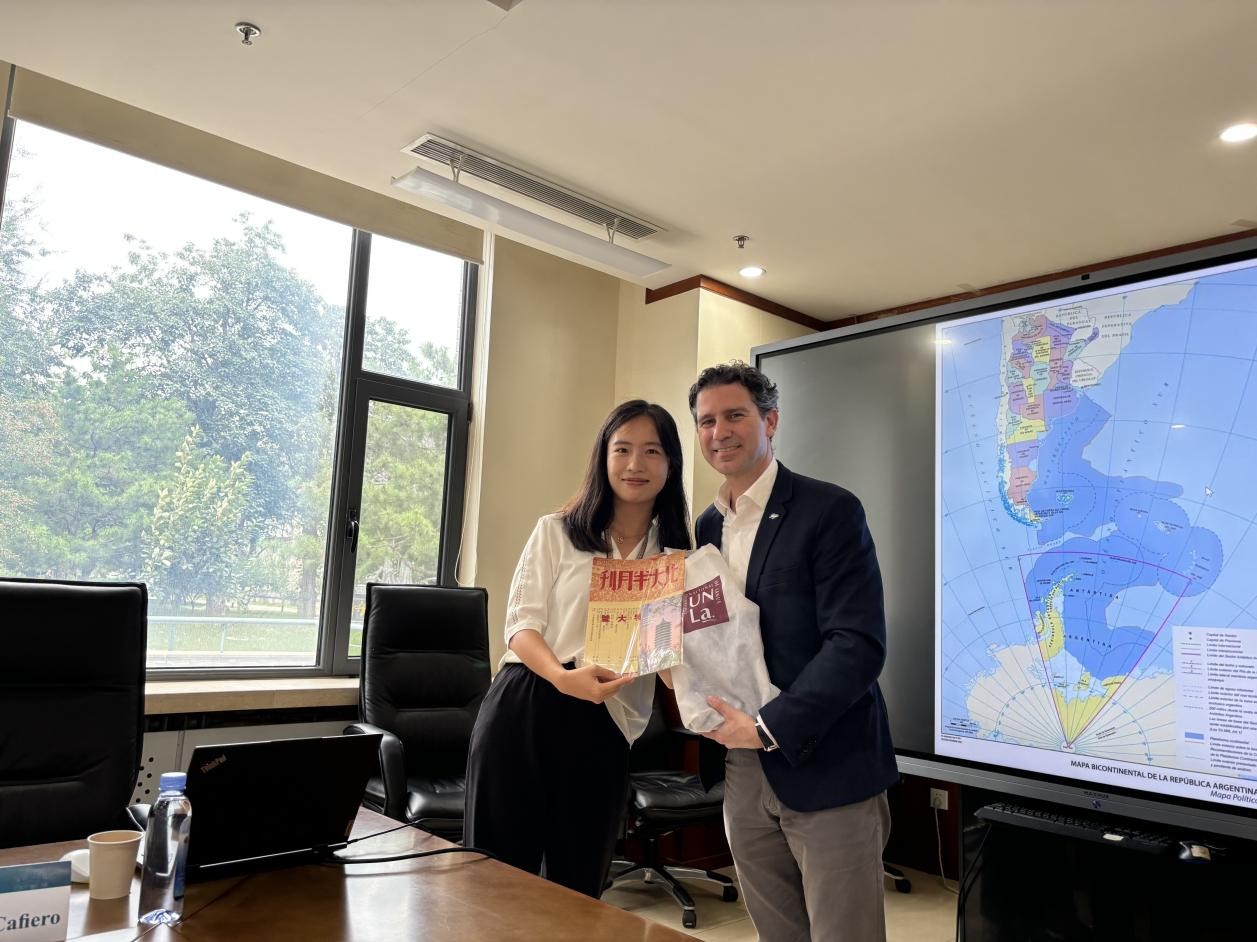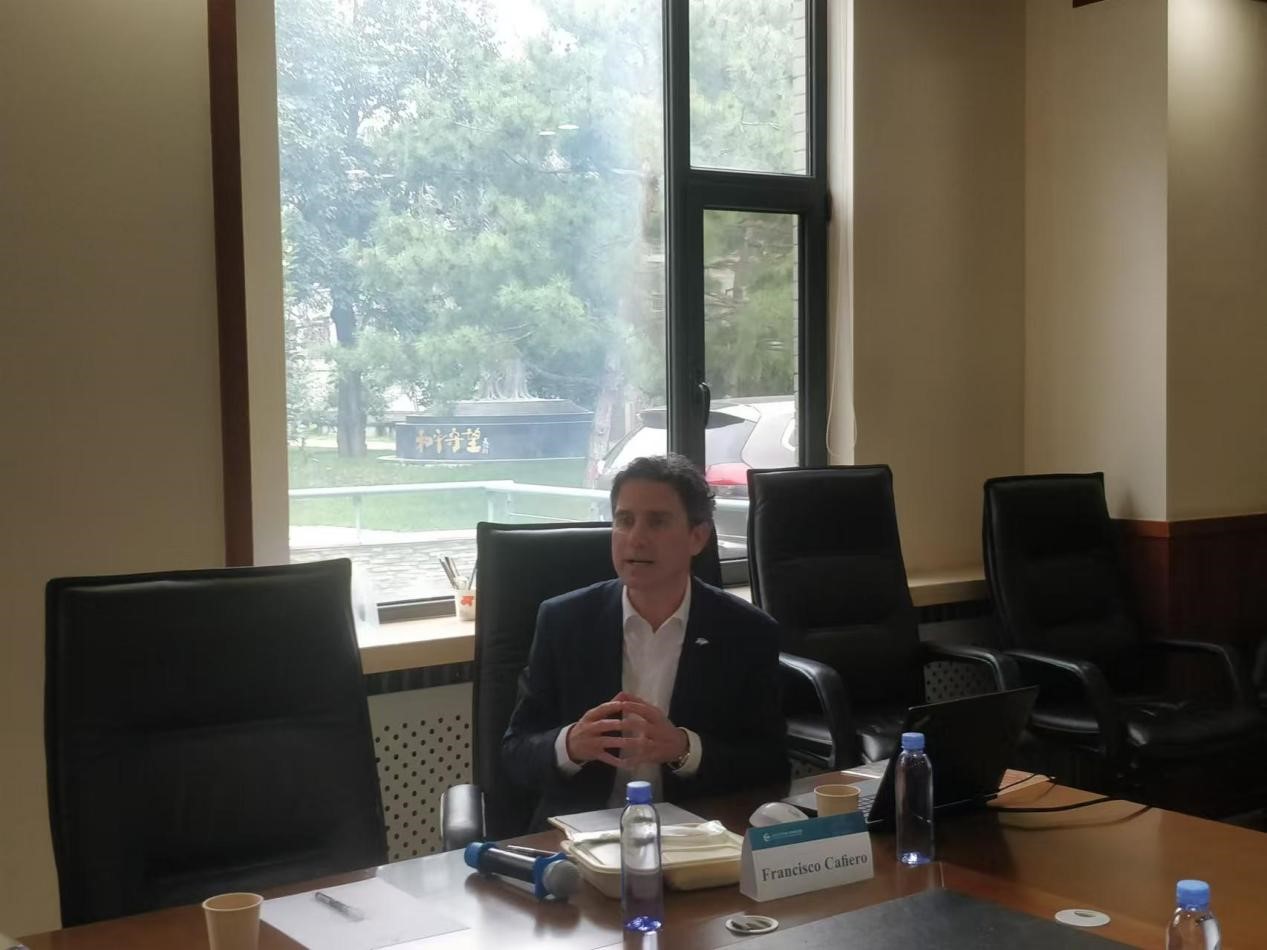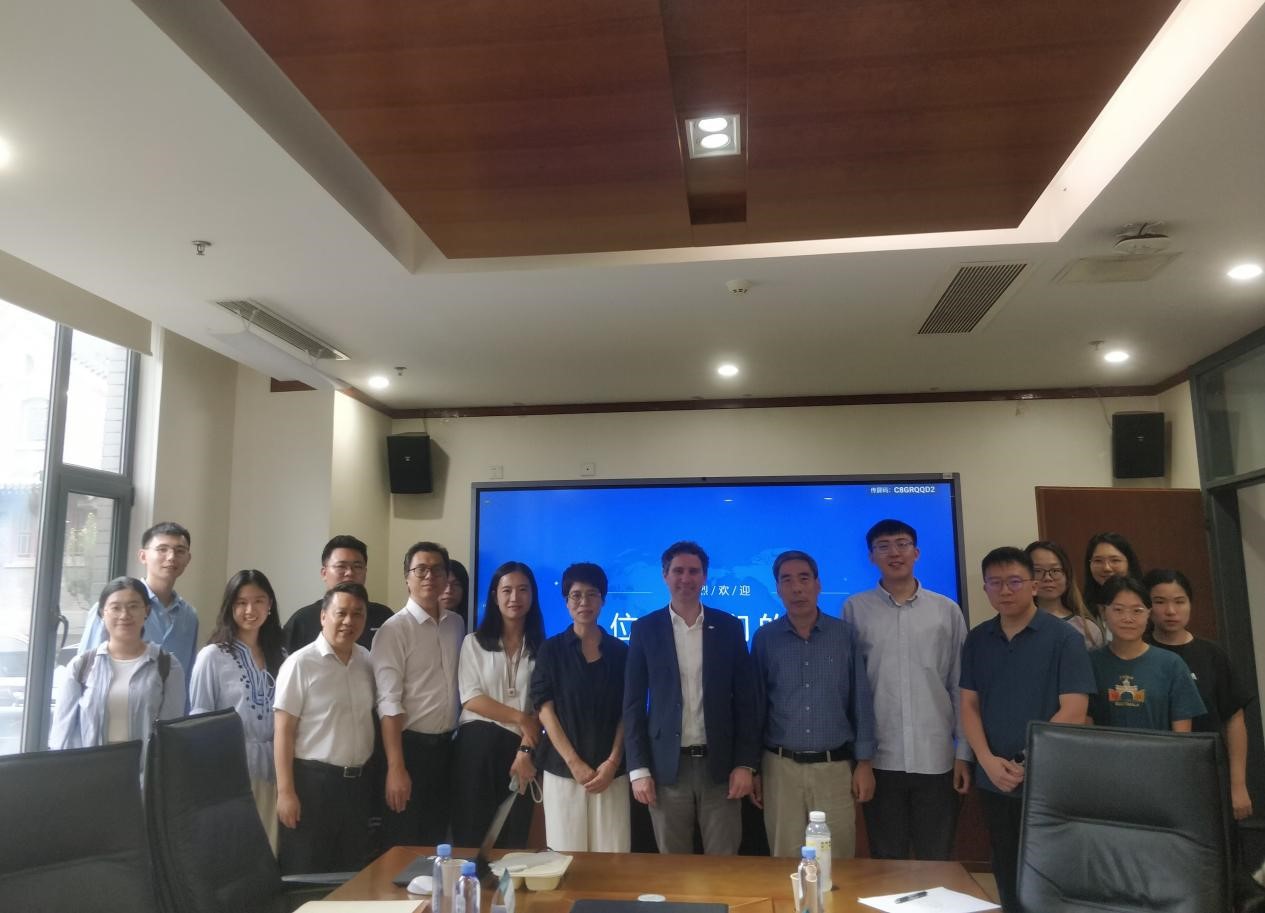On September 16, 2025, the 58th lecture in the “Adventus Amicorum” seminar series, organized by the Institute of Area Studies at Peking University, was held in the School of International Studies. The theme was “Decoding Argentina: Politics, the Economy, and the Future of Latin America.” The invited keynote speaker was Prof. Francisco Cafiero, an Argentine scholar and director of the “Manuel Ugarte” Center for Latin American Integration Studies at the National University of Lanús. The subsequent panel discussion included Prof. Dong Jingsheng, from the Department of History at Peking University; Associate Professor Guo Jie, from the School of International Studies; Associate Professor Zhang Yongle, from the Law School; Postdoctoral Fellow Li Pai, from the Institute of Area Studies; Postdoctoral Fellow Lin Zhaoran, from the Law School; and Ji Fan, director of the Gift and Cooperation Office of the Peking University Library. Associate Professor Lei Shaohua, from the School of International Studies, moderated the seminar.

Before the lecture began, Prof. Cafiero presented his grandfather’s academic works to Peking University Library.

Francisco Cafiero began his lecture by introducing Argentina’s geographical location and its historical trajectory over the past century. He particularly emphasized Argentina’s transcontinental attribute, explaining that Argentina is both a South American and an Antarctic country. He further elaborated on the historical and geographical reasons behind Argentina’s territorial claim in Antarctica. Finally, he emphasized that the Malvinas Islands are an inalienable part of Argentine territory and a significant symbol of Argentine identity.
Cafiero then introduced the Argentine Justicialist Party (also known as the Peronist Party) and its historical contributions to Argentina’s national development. Cafiero emphasized that the Justicialist Party has consistently worked to mitigate social inequality, provide social security for the poor, and care for marginalized groups in society. He also discussed Argentina’s current situation, criticizing a series of policies which, he stated, the Justicialist Party does not endorse. These include refusing to acknowledge the reality of global warming and cracking down on environmental organizations; implementing excessively harsh fiscal austerity measures; promoting extreme and blind neoliberal economic policies; and continuously reducing Argentina’s investment in social security. Cafiero argued that these economic policies essentially serve the interests of the International Monetary Fund rather than the Argentine people, leading to a significant widening of the wealth gap and a severe decline in the living standards of ordinary citizens. He also noted that the undermining of the defense cooperation between Argentina and Chile has made Argentina more reliant on the US, resulting in its increasingly becoming a country lacking strategic autonomy.

During the subsequent discussion session, Dong Jingsheng asked Prof. Cafiero how Argentines understand the historical process of Argentina’s evolution from a developed country in the early 20th century to its present state. Guo Jie raised the question of whether it is possible to arrive at a precise definition of Peronism. Zhang Yongle explored the historical origins of Argentina’s economic difficulties and the controversies surrounding current economic reforms. Using former British Prime Minister Margaret Thatcher as a connecting point, Li Pai discussed the links between the Anglo-Argentine War and the Sino-British negotiations over Hong Kong. Lin Zhaoran asked whether Argentina considers itself a Global South country or a Third World nation. Prof. Cafiero provided thoughtful and detailed responses to these questions and comments.
After the panel discussion, students and other faculty members also actively posed questions to Prof. Cafiero, all of which he answered. The seminar concluded successfully in a lively atmosphere.


